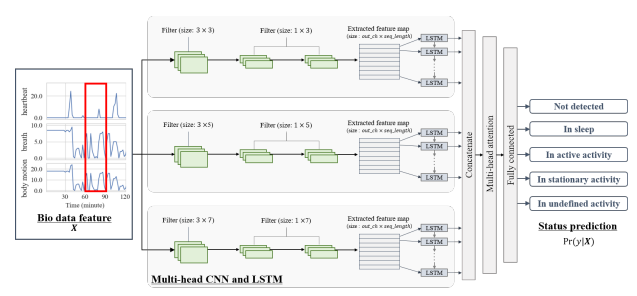With Internet of Things technologies, healthcare services for smart homes are emerging. In the meantime, the number of households of single-living elderly who are distant from using smart devices is increasing, and contactless radar-based sensors are recently introduced to monitor the users in single households. In this paper, contactless radar-based sensors were installed in over 100 households of single-living elderly to collect their biometric data under uncontrolled environments. In addition, a deep learning-based classification model is proposed that estimates the user status in predefined classes. In particular, the classification model is designed with a multi-head convolutional neural network with long-short-term memory and an attention mechanism. The proposed model aims to extract features in diverse resolutions from the biometric data while capturing the temporal causalities and relative importance of the features. The experimental results verify that the proposed classification model improves the status classification accuracy by 2.8% to 31.7% in terms of F 1 score for the real-world dataset.
